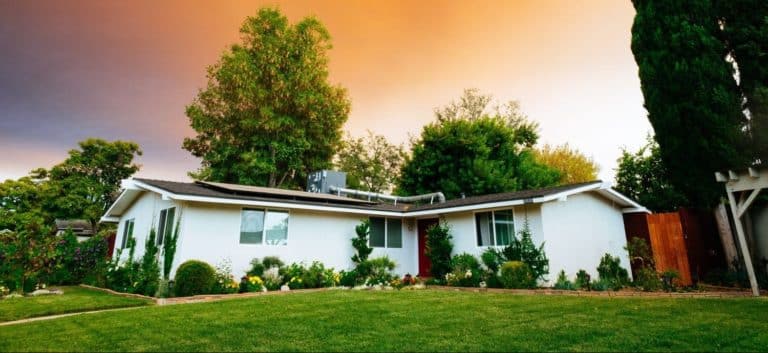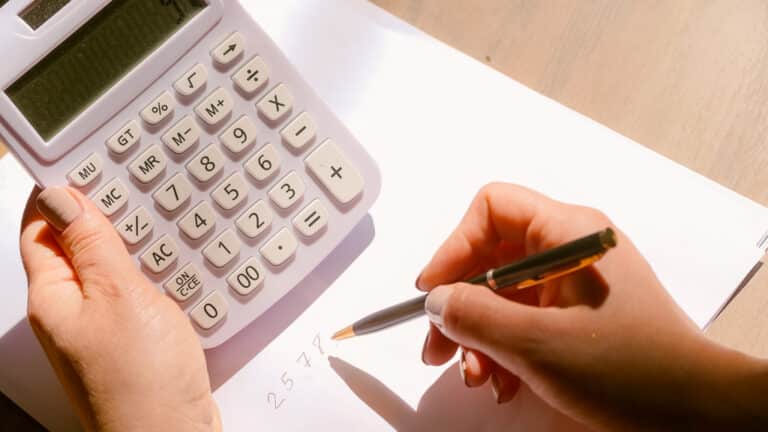When you first go through the home buying process, you may have lots of questions about down payments, closing your mortgage and interest rates. You may wonder about the key steps to get a mortgage. You will need to learn about a concept called escrow as well.
Many buyers and sellers don’t spend too much time thinking about escrow. If you do, you may think of it simply as money held by a neutral third party to pay for taxes and insurance. Believe it or not, escrow represents a fundamental part of real estate transactions by protecting sellers as well!
Curious now? Let’s answer this all-important question: “What is escrow?” and dive directly into the details you need to know so you get closer to the home purchase of your dreams.
What is Escrow?
Escrow accounts hold assets or money until all parties involved in a transaction meet specified conditions. A third, independent party holds these assets or money until the terms of that specific condition or event are met.
Escrow accounts can cover a variety of items, including the following:
- Good-faith deposits during the home-buying process
- Private mortgage insurance (PMI)
- Hazard insurance
- Flood insurance
- Mortgage insurance
- Property taxes
- Charges that could take the first-lien position, or any payment that could take precedence over your mortgage in the event that you default on your payments
Escrow occurs during two main times during a real estate transaction: during the home purchase process and during the life of the loan. More specifically, escrow:
- Protects the conditions of the sale during the homebuying process.
- Holds funds for taxes and insurance after a homeowner obtains a mortgage.
Depending on the reason for escrow, a title search company that specializes in real estate might serve as the escrow company. A bank or other financial institution may also put your funds in escrow; the job may even go to a private escrow agent.
Let’s take a look at an example of how escrow works. You plan to buy a home. You want to make sure that the home meets certain conditions, including passing an inspection. You place the earnest money deposit for the house in an escrow account in a bank or other financial institution until the inspection occurs.
The seller can feel confident that you can make the payment and the seller will know that they can sell their home. Once the house successfully passes inspection, the amount of money in escrow goes to the seller.
Unless you as the borrower decide to waive escrow payments, you must have ongoing escrow to pay for your property taxes and homeowners insurance. This means your payments will come out of escrow instead of you paying them outright each year. You can arrange to have your mortgage lender store a portion of your mortgage payment to cover these payments. Your lender will pay your insurance company for your homeowners insurance premiums and will also pay your local government for your property taxes.
The Benefits of Escrow
Escrow offers several benefits, but the most important benefit involves protection. We mentioned how it can benefit sellers — they feel confident knowing that they can sell their home and that the buyer has money for the sale. But how exactly can escrow benefit homeowners, homebuyers and lenders? Let’s take a look.
Homeowners
As a homeowner, your mortgage lender establishes an escrow account when you close on your home. When you make your monthly mortgage payment, a portion of that money goes into an escrow account.
Escrow ensures that you have enough money to pay for property taxes and homeowners insurance; the money is all rolled up into your mortgage payments. It makes the payments more manageable for you. You also don’t have to keep track of the due dates or make sure your tax bill gets paid on time.
Let’s look at the other side of the coin. If you don’t have an escrow account, you may be on the hook for thousands of dollars for property taxes several times a year — you may find it hard to come up with that kind of money on demand.
Your servicer will also adjust your monthly payments for taxes and homeowners insurance. If your costs go up or down, that change will be reflected in your mortgage payments. This isn’t always automatic but happens on an annual basis.
Homebuyers
Homebuyers can benefit from money in escrow because it offers them protection during a real estate transaction.
Homebuyers often put some money down before they put down a full down payment. This deposit is called an earnest money deposit or “good faith deposit.” The good faith deposit involves putting money into an escrow service to show that the buyer intends to complete the home purchase. The escrow account protects the good faith deposit during a home sale, and later, that money gets put toward the down payment at closing.
Mortgage Lenders
Lenders like escrow accounts because it protects them. Not paying the mortgage isn’t the only reason a homeowner can face foreclosure. They might also encounter foreclosure by not paying property taxes, for example. The mortgage lender usually asks for extra money for escrow at closing so they know they have “extra padding” to pay insurance and taxes when needed. Ask your lender about the details before you take your final walkthrough of your new home and sign closing documents.
The Disadvantages of an Escrow Account
Take a look at the disadvantages of an escrow account, particularly after you buy a home. You may face the following:
- Incorrect estimates: Lenders also estimate your future tax and insurance escrows — not always in your favor. They usually make the most risk averse estimate possible. When property taxes and insurance go up, you could end up with an escrow shortage. In this case, you’d just need to pay your lender the amount it needs to cover the shortage. It’s a good idea to check escrow calculations with your lender before you close on your home. However, if your lender overestimates the amounts and you pay more, you’ll receive a refund or credit for your overage balance.
- Higher mortgage payments: When you choose to have an escrow account, your mortgage payments will naturally be higher than if you chose to pay for your taxes and insurance yourself. You can lower your mortgage payments by paying for those items outright, though some lenders do require escrow.
- Changes to your monthly payment: Your monthly payments may change due to fluctuations in your tax or insurance bill. Your lender will notify you if and when these changes take place.
How Does Escrow Work?
Let’s look into the very basic structure of how your lender calculates your escrow amounts:
- First, your lender calculates your annual tax and insurance payments.
- Then, your lender divides that amount by 12.
- Your lender will then add the results to your monthly mortgage statement.
- Your lender will then take your escrow portion of your monthly mortgage payments and pay your insurance premiums and real estate taxes on their respective due dates.
Do You Have to Pay Escrow Monthly?
Since your lender divides the total cost of your payments by 12, you can expect to pay toward your annual property taxes and insurance every month through your monthly mortgage payments.
For How Long Do You Have to Pay Escrow?
Your lender may allow you to drop an escrow account (such as in the case of PMI, which you pay if you put less than 20% down for a mortgage). You can request the lender to remove PMI when you have at least 20% equity in your home. Many lenders also provide the option to waive escrow upfront in the current market.
You may also prefer to make your own tax and insurance payments. In that case, the lender stops making payments from your escrow account and you begin making those payments on your own.
How Much Do Escrow Fees Cost?
Now, let’s take a look at the types of escrow fees you might need to pay and the full amount you might have to tackle during the homebuying process. (It’s a little harder to estimate what you’ll pay for your property taxes and insurance in escrow because every situation is different.)
You’ll pay real estate attorney fees, mortgage origination fees, property taxes, seller profits and/or homeowners insurance premiums. Escrow fees typically cost you about 1% to 2% of the purchase price of your home.
For example, if you buy a house for $200,000, this means you’d pay between $2,000 and $4,000 in escrow fees.
Know How Escrow Benefits You
Escrow can benefit all parties, from buyers to sellers to lenders. It’s important to know the ways that escrow can help you during the home-buying process and after you purchase the home.
Calculate how much you’ll have to pay as a homeowner for property taxes and insurance based on your particular home and location. Also calculate how much you might pay in escrow fees during the home-buying process.
Frequently Asked Questions About Escrow
Can I withdraw money from my escrow account?
No party can withdraw money from an escrow account. For example, if the buyer pays into the account, the seller receives money from the account through the third-party escrow company. The money held in the escrow account is designed to stay completely secure.
How can I reduce my escrow payment?
You can try reducing your escrow payment in two main ways. First, you may want to call your insurance agent to find out if you can reduce the cost of your homeowners insurance policy premium. You may want to shop around for a cheaper policy if you find that your insurance agent won’t bend on the premium price.
Next, you can also speak with a local tax assessor to find out if you can get your home reassessed. You may be able to dispute the assessor’s evaluation after the fact as well. You may also want to look into any statewide or county programs that offer exemptions, including for seniors, veterans, disabled individuals and more.
Once you’ve done either of these, make sure to reach out to your servicer to make sure your servicer knows about the change.
Can a buyer back out during escrow?
Buyers have a period of time in which they must complete property inspections, obtain an appraisal, check out the title and also qualify for a loan. If any contingency isn’t met during this time, it’s possible that the buyer can cancel the escrow and get their deposit back, but in a hot market, many people waive contingencies like this.
What are the closing costs and how much will you pay?
You pay closing costs when you close on your loan. They involve appraisal fees, attorney’s fees, inspection fees, and your good-faith money that you put in escrow can go toward these closing costs.
Feel like you don’t understand the paperwork and processes involved in getting a mortgage? Reach out to Morty, your mortgage advocate, with any questions you may have about the escrow process.






